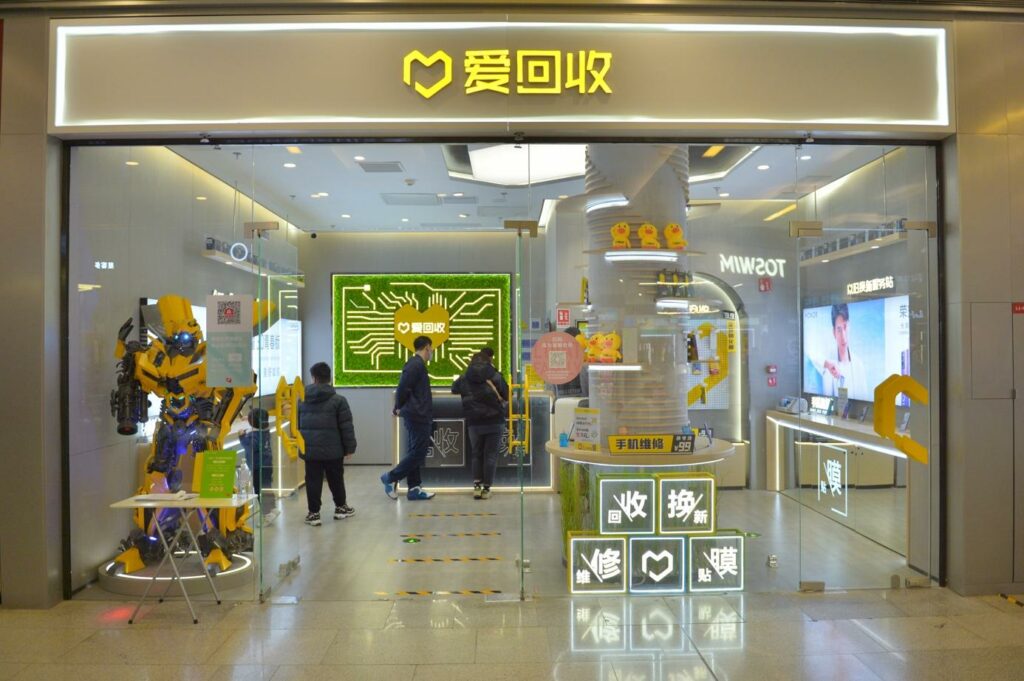Better Privacy Will Grow The Market For Pre-Owned Electronics

By Kerry Xuefeng Chen, CEO of ATRenew

The market of unused, pre-owned electronics in China is worth hundreds of billions of dollars, and steps that are being taken to improve the sector will help grow it even further
Trust is a vital component of any market economy and when consumers are convinced that the goods and services they purchase are high quality and safe, they will spend money.
The market in unused, pre-owned electronics is at an exciting stage in its growth. The pre-owned consumer electronics industry started relatively late in China and over the past 10 years it has undergone (and continues to undergo) a process of large-scale specialization, standardization and expansion.
This growth is being driven by consumers who have both environmental and economic concerns. As new phones constantly hit the market (the latest iPhone 14 recently hit stores), questions are being asked as to where all these idle, used phones are going. In fact, according to research released by China Association of Circular Economy, over half of all old mobile phones in China are idle, usually lying in people’s cupboards and desk drawers.
How to deal with these unused phones and other electronics is important. Technically, these devices which contain toxic and harmful substances, such as lead and mercury, will cause soil and groundwater pollution if they are abandoned in landfills. In comparison, recycling and reusing the pre-owned devices is a more climate- and eco-friendly way, which opens the door for a market of second-hand electronics.
According to GMV, China’s pre-owned consumer electronics transaction and service market grew to 309.5 billion yuan in 2021 from 79 billion yuan in 2016 with a compound annual growth rate of 31.4% between 2016 and 2021. The scale of this market is expected to grow further to 987.5 billion yuan by 2026, at a compound annual growth rate of 26.1% from 2021 to 2026.
(ATRenew’s physical store to provide face-to-face recycling services. Source: ATRenew)
The cybersecurity hurdle
However, this growth is not guaranteed and there are many obstacles that could potentially derail this circular economy success story. One such obstacle is cybersecurity, specifically privacy concerns that may put consumers off from engaging in the sector. (The other two are pricing and other opaque issues, and the lack of convenient recycling channels).
In 2021, cyber-attacks exposed nearly seven billion data records according to Identity Theft Resource Centre, and a 2019 study found that 1 in 5 second-hand mobile phones still contained data from previous owners, including private emails, intimate photos, contact lists, text messages, tax documents, bank account details and more.
Often, previous owners will either forget, or not know how to properly erase data, and many third-party marketplaces will not screen and erase data once they receive the phone. As such, second-hand mobile phones present a serious and unappreciated cybersecurity danger. This creates consumers’ lack of trust which threatens to stifle the growth of circular economy.
Used and refurbished phones are an essential part of creating a more sustainable smartphone supply chain and issues around security shouldn’t discourage consumers from considering this route. Hence, we need to ensure that privacy and cybersecurity issues are addressed, and consumer confidence remains.
Protecting users’ privacy and data is essential and feasible
In China, the government has already taken the initiative and set in place guidelines to guarantee user privacy. In May this year, the Administration for Market Regulation of Beijing issued a draft for soliciting opinions on recycling norms for waste electronic products. Among them, the collection process is clearly regulated.
It states that when recycling waste electrical and electronic products, such as waste mobile phones and computers, with personal privacy involved, operators should clean up users’ personal information, protect users’ privacy, and not disclose users’ information to any third party.
ATRenew has developed its own pre-used product data removal system named AiQingChu to protect users’ data security. Through multiple data erasure and overwriting, it can live up to the expectation for cleaning process tracking, cleaning result assurance, more thorough cleaning, and higher efficiency.
(AiQingChu, ATRenew’s self-developed pre-used product data removal system.
Source: ATRenew)
Moreover, it can completely prevent the malicious recovery of users’ data and effectively avoid users’ privacy leakage or other data privacy security issues. At present, AiQingChu has obtained ADISA international certification and supports more than 20 different international mainstream standards for deep data cleaning.
There are other steps that are being taken to make it easier for consumers to purchase and use idle mobile phones. Pricing is being made more transparent and Artificial Intelligence and Big Data are applied to improve how electronics are priced in the marketplace. More recycling channels are being created with ATRenew’s 1,607 stores established in 241 cities in China, and diversified recycling methods such as door-to-door, postal and self-service recycling are available, making it easier to recycle idle electronics.
The technology exists to protect consumer data and it is incumbent on those of us in circular economy to proactively secure data and guarantee safety for consumers and partners alike. If we do this properly and seriously, we will not only continue to see growth in the market of unused, pre-owned electronics, but do so in a safe and secure manner.
Kerry Xuefeng Chen is the CEO of ATRenew. With 14 years leadership experience in pre-owned electronics recycling industry, Kerry founded and led ATRenew Inc. (NYSE: RERE) to operate a leading technology-driven pre-owned consumer electronics transactions and services platform which integrates C2B, B2B, and B2C capabilities to empower online and offline transaction services of pre-owned electronic products. The mission of ATRenew (which stands for “All Things Renew”) is to give a second life to all idle goods, reflecting their commitment to building an enterprise with ESG embedded in its genes. Kerry holds a master’s degree in Computer Application and Technology from Fudan University.
For more information, please visit: www.atrenew.com.